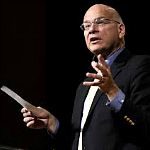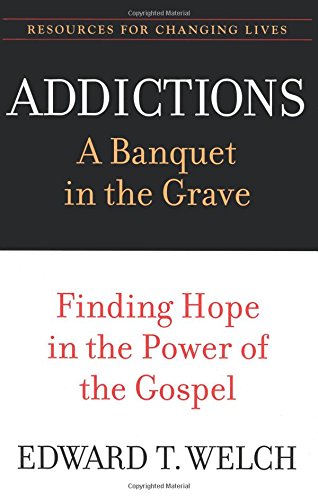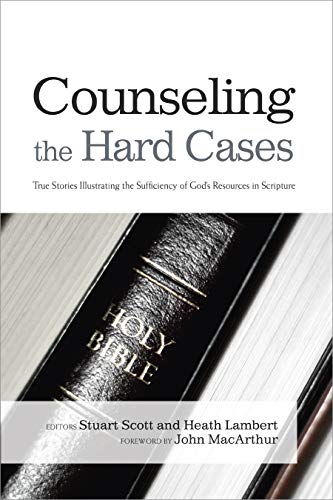Quotes about Addiction
Deliverance ministries assume that demons are behind the inability to stop certain sins and addictions, and they tend to look for the quick fix. But sin is not so easily dispatched. Being rid of these sins requires yielding oneself completely to God, and it can take time… What Christians need is not deliverance from demons (from which they have already been delivered) but immersion and submersion in the Holy Spirit.
You know you are an addict when you are trying to escape your distress with the very thing that brought you your distress. And when you are in that spiral, you are stuck forever.
You know how addiction works. It starts like this: There’s some kind of disappointment or distress in your life. As a result you choose to deal with that distress with an agent; it might be sex, it might be drugs, it might be alcohol. The agent promises transcendence. The agent promises freedom, a sense of being in control, a sense of being above all this, a sense of being liberated, a sense of escape. And so you do it. But when you do it, when you take the addicting agent as a way of dealing with life, the trap is set.
“Am I Addicted to Television?” With the aid of this list below, allow the Holy Spirit to search your heart! 1. You call someone to videotape TV shows that are on the same time as the ones you are watching and presently videotaping yourself. 2. You watch a program with the anticipation of seeing a sinful act. 3. You enjoy the sinful scenes on the show. 4. You eat your dinner in front of the TV. 5. You neglect your spouse or family for a TV show. 6. You look forward to a TV show more than you look forward to next week’s church service? 7. You miss Wednesday evening prayer meeting for TV. 8. You begin to role play the parts you see on TV on a serious basis. 9. Your conversation is replete with TV reviews and anecdotes. 10. TV replaces your Bible reading or devotion time. 11. Family Worship has been replaced by a TV program. 12. You know more about TV than Scripture. 13. No one is allowed to speak while the TV is on. 14. You begin to start empathizing with the characters the actors are portraying. 15. You rush home so you will not miss a program. 16. You watch TV late into the night consistently. 17. When company visits, the TV remains on. 18. You disturb others on the job by discussing a TV show. 19. You yell at the TV when a certain scene unfolds. 20. You become angry when “there ain’t nothing good on TV tonight.” 21. You let TV do your thinking for you. 22. The only book you read is TV guide. 23. You turn the TV on the moment you enter a room. 24. The TV is on when you are doing your chores. 25. You do not want people to visit when your programs are scheduled to come on. 26. When people visit, you wish they would leave so you could watch your programs. 27. You laugh at the very sin which sent Christ to the cross. 28. You have every premium cable channel like HBO, Cinemax, etc. 29. You constantly flip channels with your remote control. 30. You begin to adopt ideas and attitudes contrary to Scripture. 31. You find more pleasure watching TV than being with God’s people. 32. You go nowhere but have become a couch potato.
So how can you tell when a pleasure crosses the line from innocent to guilty? 1. The pleasure is plain wrong. 2. The pleasure captivates and captures you. 3. The pleasure is hidden. 4. The pleasure steals you away from the good. 5. The pleasure doesn’t deliver.
Obviously we need to come in line with the truth of Scripture. Sin loves to hide. Addicts love to hide. Sin hates the light. Yet the light of God’s Word exposes our sin. The sword of the Spirit must be allowed to carve away our many layers of self-deception (that plagues all addicts). It beckons us to live in the truth in our desire to forsake Satan, the father of lies, for the God who is truth. It’s being honest with ourselves, admitting we have a problem and confessing that problem as sin to the Lord. Apart from this initial step we have no hope in moving forward.
God is our all-sufficient Creator and Provider. In the first of the Ten Commandments He says, “You shall have no other gods before Me” (Ex. 20:3). Yet with addictions, we are revealing the fact that our hearts are bowing down to something we believe God cannot provide. The alcohol and drugs are not the essence of the issue. The problem is a heart that worships other gods. Maybe it’s the god of pleasure or the god of love or the god of acceptance or the god of peace or the god of control. You see, the problem is not outside of us. It’s not ultimately at the liquor store or on the Internet. The problem is within us and the booze and pornography are only satisfiers of deeper idols within our hearts. The problem is not the idolatrous substance. The problem is a passion in our heart that is wrongly satisfied with a false god (Concept adapted from Ed Welch, Addictions, p. 49).
An addiction is any pleasure that becomes an obsession (a mental preoccupation) which often then results in a compulsion (a behavior that acts out the obsession). Addictions can be chemically based, but they can also be emotionally or behaviorally based as well. An addiction is not a disease. You can’t catch an addiction. An addiction is a sinful disorder which therefore stresses responsibility for your addiction, but also gives hope for recovery from your addiction. An addiction is anything we depend on that draws us away from giving greater dependence on God. An addiction is not trusting in the sufficiency of Christ. An addiction is a false god. An addiction is an idol. Addictions are the lust to satisfy passions with idols outside of Christ.
I believe the greatest way to overcome addictions is with a greater desire. Addictions are a problem of passion. The problem is not with the passion itself. The problem is with the object our passion calls us to pursue. So why does our passion cause us to run to an idol? Because we believe that idol is most attractive. The power to change is available in Christ, yet we don’t go there because the pleasure of the idol seems more desirous that Christ. However, if we can see Jesus Christ as more satisfying – which He is, we will never pursue another idol again in our lives.
Do you have an addiction? Is there anything that you believe you “really need?” Is there anything that you could not imagine losing for a few weeks? Do you plan your life around the ability to get or use something? Is there any behavior, habit or unhealthy desire that you can’t stop? Are other areas of your life suffering (family, friends, career, finances, health) because of a certain behavior? Is a certain behavior preventing you from growing in Christ? Do thoughts of a certain item or action or person consume you more and bring more pleasure than thoughts about God? Is there anything that is wasting your money and time? Is there anything in your life that you keep hidden from others? Is there anything in your life that leaves you anxious, guilty or empty, but yet you still desire more of it? Is there anything that is mastering you? When you are grumpy, depressed, scared, bored, stressed or irritable, where is the first place you turn? What or whom do you trust for comfort and protection, adventure and satisfaction, purpose and pleasure? Not all the things we can be addicted to are necessarily evil, but if God is not on the top of the food chain you have an addiction. You are worshiping and idol.
This [boredom] is why people are so prone to an addictive lifestyle. Many people who fall into sinful addictions are people who were once terminally bored. The reason why addictions are so powerful is that they tap into that place in our hearts that was made for transcendent communion and spiritual romance. These addictive habits either dull and deaden our yearnings for a satisfaction we fear we’ll never find or they provide an alternative counterfeit fulfillment that we think will bring long-term happiness, counterfeits like cocaine, overeating, illicit affairs, busyness, efficiency, image, or obsession with physical beauty. They all find their power in the inescapable yearning of the human heart to be fascinated and pleased and enthralled. Our hearts will invariably lead us either to the fleeting pleasures of addiction or to God.
Copied from: Pleasures Evermore: The Life-Changing Power of Knowing God by Sam Storms, © 2000, p. 51. Used by permission of NavPress – www.navpress.org. All rights reserved. Get this book!
An addiction to anything other than God Himself is wrong. God is the only thing we can (and should) occupy ourselves with habitually. To do so with anything else draws us away from Him and displeases Him. He alone is worthy of our complete attention, love, and service. To offer these things to anything or anyone else is idolatry.
The biblical view of drunkenness – the prototype of all addictions – is that it is always called sin, never sickness. Drunkenness is against God and His law. Scripture is unwavering in this teaching and relentless in its illustrations. Noah (Gen. 9:18-27), Lot (Gen 19:30-38), Elah (1 Kings 16:9), and Nabal (1 Sam. 25:36) all portray the moral foolishness of being mastered by alcohol.
Addictions – A Banquet in the Grave, P&R Publishing, 2001, p. 22, Used by Permission. Get this book!
Addiction is bondage to the rule of a substance, activity, or state of mind, which then becomes the center of life, defending itself from the truth so that even bad consequences don’t bring repentance, and leading to further estrangement from God. To locate it on the theological map, look under sin. More specifically, since sin is a broad category that includes both self-conscious disobedience and victimizing slavery, find addiction on the side that emphasizes slavery.
Addictions – A Banquet in the Grave, P&R Publishing, 2001, p. 35, Used by Permission. Get this book!
We begin to believe our lies. What started as lying to others has turned against us. We tried to keep other people from seeing our private addictions; now we can barely see them ourselves. We once tried to persuade others that we didn’t have a problem; how we have persuaded ourselves that we don’t have a problem. When we are blind to our own problem, there is no reason to change.
Addictions – A Banquet in the Grave, P&R Publishing, 2001, p. 38, Used by Permission. Get this book!
The progression of addiction is that it begins as the sin of the naïve and develops into the sin of one who is hardened and trapped.
Addictions – A Banquet in the Grave, P&R Publishing, 2001, p. 38, Used by Permission. Get this book!
The diagnosis of sin is never the last word. Instead, the last word is Jesus Christ. Sin should take us right to Jesus. The way out of addictions is to talk more about Jesus, the Redeemer and Liberator, than about sin… The biblical arithmetic is this: for every one look at your sin, take ten looks at Christ.
Addictions – A Banquet in the Grave, P&R Publishing, 2001, p. 40, Used by Permission. Get this book!
While you struggled with addiction, was it ever accompanied by the fear of the Lord? Did you ever have a keen sense of the presence and holiness of God when you struggled with addictions? Did you ever have a sense that you were spiritually growing in repentance, faith, and obedience while in your addiction? When we have a disease, we can still be growing in the knowledge of Christ, but addictions are incompatible with spiritual growth.
Addictions – A Banquet in the Grave, P&R Publishing, 2001, p. 41, Used by Permission. Get this book!
The true nature of all addictions is that we have chosen to go outside the boundaries of the kingdom of God and look for blessing in the land of idols. In turning to idols, we are saying that we desire something in creation more than we desire the Creator.
Addictions – A Banquet in the Grave, P&R Publishing, 2001, p. 47, Used by Permission. Get this book!
Using the perspective of idolatry, addicts are blinded by their own desire. They refuse to see themselves as dependent on God. God’s glory and fame is not their goal. In their self-addiction or selfishness, they worship and bow down before false gods. Addicts have defected from the living God. Instead of worshipping in the temple of the Lord, they perform addictive rituals that give them more perceived power, pleasure, or identity. They see in their addiction a form of magic (Deut. 18:10-14). The promises of the idol, however, are lies. Any identity, power, or peace they bring is false and temporary. There are only two choices: putting your faith in a loving God and thus knowing freedom, or putting your faith in idols (Satan) and being enslaved. Curiously, our selfish pride prefers slavery.
Addictions – A Banquet in the Grave, P&R Publishing, 2001, p. 54-55, Used by Permission. Get this book!
As people who want to help addicts, we need something very powerful to break the hold of idols. Pleas, tears, arguments, or threats will not penetrate. Reason is useless. We cannot simply say, “Stop doing drugs, get control of yourself, stop worshipping an idol.” As a result of spiritual oppression, drug worshippers may be very intelligent, but they can be oblivious to the destruction and slavery associated with drug abuse. They need the power of God (1 Cor. 1:18), the message of Christ crucified and risen. Other therapies can offer sobriety, but only this good news is powerful enough to liberate the soul.
Addictions – A Banquet in the Grave, P&R Publishing, 2001, p. 55, Used by Permission. Get this book!
[Addiction] is not like a disease. It is something we do rather than catch, we confess it rather than treat it, the disease is in our hearts rather than our bodies, and only the forgiveness and cleansing found in the blood of the Great Physician is sufficient to bring thorough healing.
Addictions – A Banquet in the Grave, P&R Publishing, 2001, p. 61, Used by Permission. Get this book!
It is interesting to note that secular approaches have embraced an approach to confrontation that mirrors church discipline. It is technically called intervention. In essence it says that we can no longer wait for people to destroy themselves and others. They must be presented with the facts about their problem. They are out of touch with reality and need others to present it to them. Furthermore, this is best done by a group of people who deeply love the substance abuser. Curiously, intervention is hailed as one of the most significant advances in drug treatment. Yet church discipline is the original and intervention the imitator.
Addictions – A Banquet in the Grave, P&R Publishing, 2001, p. 96, Used by Permission. Get this book!
One of the problems with the perspective that addictions are a disease is that it leaves no room for this kind of fear of the Lord. A god who helps us to be strong in the face of illness is not the same as the God whose holiness reveals our sin, who shows us our desperate need for a mediator, restores our relationship with Him, and empowers us to live as holy children. Holiness is key. Without the knowledge of our Father’s holiness and our response of reverence, everything about God becomes ordinary.
Addictions – A Banquet in the Grave, P&R Publishing, 2001, p. 167, Used by Permission. Get this book!
If we allow the Bible to reveal the unseen spiritual realities behind addictions, we suddenly realize that addictions are more than self-destructive behaviors. They are violations of God’s laws: His laws that call us to avoid drunkenness and immoderate self-indulgence (Rom. 13:13), His law that calls us to love others (1 John 4:7), and His law that calls us to live for Him rather than ourselves (1 Cor. 10:31). This means that addiction is more about someone’s relationship with God than it is about biology. It reveals our allegiances: what we want, what we love, whom and what we serve. It brings us to that all-important question, “Will you live for the fulfillment of your desires or for God?









